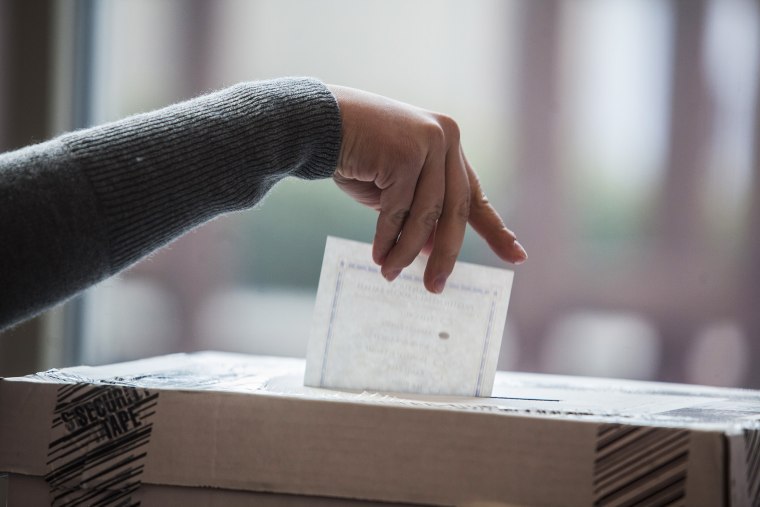It was only a matter of time before automatic voter registration reached another state, though I thought it'd take more than a week.
More than a half million New Jersey residents could soon become New Jersey voters.Gov. Phil Murphy signed legislation Tuesday that will automatically register people to vote if they apply for a driver's license or non-driver ID card in the Garden State.New Jersey is the 13th state to have automatic voter registration. The new law could register nearly 600,000 people, according to the Center for American Progress, a progressive research group.
The news comes just five days after Maryland also adopted AVR. New Jersey and Maryland join (in alphabetical order) Alaska, California, Colorado, Connecticut, District of Columbia, Georgia, Illinois, Oregon, Rhode Island, Vermont, Washington, and West Virginia.
Nevada is likely next: AVR will be on the statewide ballot this fall, and most observers expect it to pass.
Not bad for a policy that didn't exist in any state as recently as three years ago.
If you missed our coverage last week, I’ve long believed this is a policy that’s tough to argue against. When it comes to registering to vote in the United States, the burden has traditionally been on the individual: if you’re eligible to vote, it’s up to you to take the proactive steps needed to register.
Automatic voter registration, which already exists in many of the world’s democracies, flips that model.
The idea is exactly what it sounds like: under the policy, states automatically register eligible voters, shifting the burden away from the individual. Those who want to withdraw from the system can do so voluntarily without penalty, but otherwise, Americans would simply be added to the voters rolls as a matter of course.
This tends to be a Democratic priority, though I see it more as an example of good governance than a partisan tactic. After all, when Donald Trump won two years ago, voter registration wasn’t the principal problem for Dems; the failure of already registered voters to show up was a far more consequential issue. (For more along these lines, note Paul Glastris’ editorial in the new issue of the Washington Monthly.)
That said., automatic voter registration, regardless of its electoral impact, looks like an idea whose time has come.
Postscript: Let’s not forget that Rep. David Cicilline (D-R.I.) has taken the lead on sponsoring a national AVR bill at the federal level, and his proposal has 108 co-sponsors. At this point, however, literally all 108 are Democrats, and in a House led by a far-right Republican majority, the bill has no realistic chance of getting a vote, at least not in this Congress.
